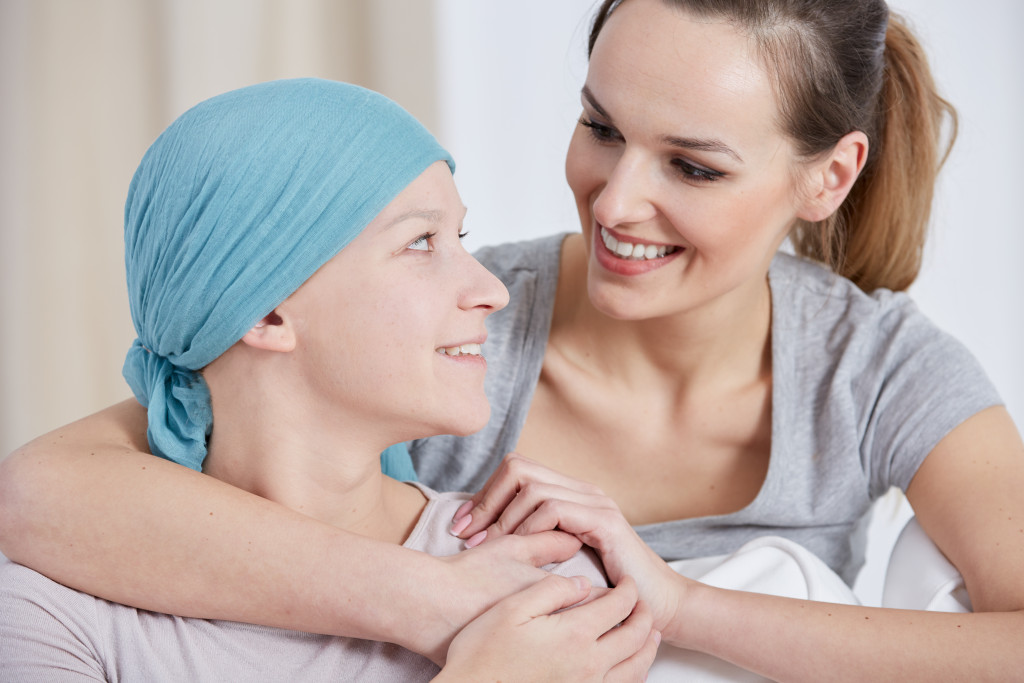Cancer has a significant impact on communities throughout the United States. According to the American Cancer Society, cancer is the second leading cause of death nationwide and is estimated to take over 600,000 lives annually. That’s why it’s vital to understand how this disease affects our communities and what they can do to actively support those affected by it. Here’s a break of what that looks like in more detail.
Financial Burden
Cancer treatments are often expensive, and many people can’t afford them without assistance. One study showed that out-of-pocket costs for cancer treatment in the U.S. cost around $42,000! This financial burden affects individuals and their families; research shows that when a family member is diagnosed with cancer, their income decreases by an average of 18%. Therefore, any donations or fundraising efforts towards cancer research are greatly appreciated by those struggling financially due to treatments.
Lost Productivity
When contracting cancer, they often take time away from work or school to receive treatment. Unfortunately, this can result in lost wages or missed educational opportunities, which can impact local communities’ overall productivity and economic output. Studies show that lost productivity due to cancer is much higher than other chronic diseases like diabetes or heart disease, costing billions of dollars annually in lost wages and reduced economic activity.
Emotional Impact
Of course, it’s essential to consider the financial burden of cancer and its emotional effects. News of a diagnosis can leave family members feeling overwhelmed and helpless—especially if they don’t know how best to provide emotional support for their loved one undergoing treatment. It’s also crucial for healthcare providers to recognize signs of mental health issues (such as depression) in those affected by cancer so that they can be treated accordingly.
Cancer can also lead to social isolation for both patients and their families. Those diagnosed may withdraw from friends and activities due to pain or fatigue caused by their illness. At the same time, family members may become overwhelmed with caring for their loved one or struggle with feeling helpless due to the uncertainty of the situation. This sense of loneliness can further exacerbate depression and anxiety for those affected by cancer, making it even more difficult to cope during an already difficult time.

How Communities Can Help Deal With Cancer
Cancer has an enormous impact on communities across America—financially and emotionally. So it’s up to us all to raise awareness about how this deadly disease affects individuals’ lives and provide resources and support for those affected by it. Here’s how communities can help individuals who have cancer in the community.
Raising Awareness
One way people can make a difference in their communities is by raising awareness about the effects of cancer. They should educate themselves about how this disease affects individuals physically and emotionally; there are many resources available online and at your local library to find information about different types of cancers, treatments available, and other related topics. Community members should also talk openly about their experiences with others affected by cancer so that they can learn from each other and provide much-needed emotional support during difficult times.
Community Support
Fortunately, many organizations offer invaluable support services to those facing cancer in their community. These organizations provide financial aid, housing assistance, counseling services, educational materials, and more—all designed to help make life easier for those impacted by this terrible disease. In addition, by connecting people facing similar experiences within their community, these organizations help create an environment of understanding and empathy that is essential for anyone going through a difficult time like this.
Foster Parent Program
It might be grim to think about, but many people diagnosed with cancer may not have anyone to care for them during their treatments. That’s why communities need to offer resources such as the foster parent program, which connects families and individuals needing caregiving with volunteers who can provide that service from the comfort of their homes. Many communities should offer members a chance to become foster parents for those in need, whether they face cancer or any other health issue. This way, members can be closer than ever while also helping each other.
These are just a few ways communities can help cancer patients. By ensuring individuals and families get the financial and emotional support they need, communities can make life a little easier for everyone going through this challenging experience. Understanding how cancer affects our communities and what we can do to support those affected by it is one of the many ways we can make a difference.
